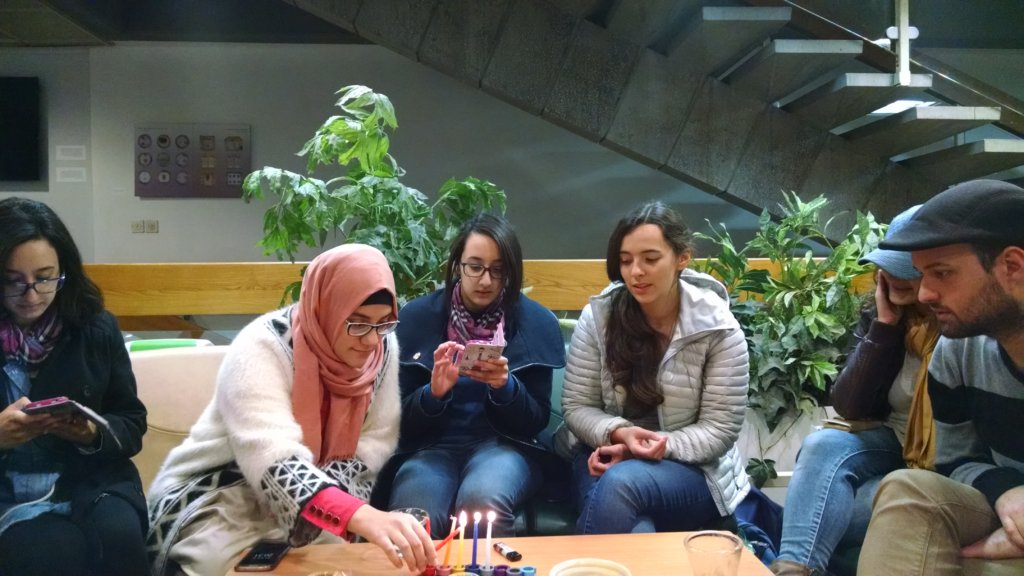By Dr. Yehuda Stolov | Executive Director
March 14
In our first meeting of the semester, we began by discussing the practice of repeating statements of the Adhan. We then learned about how a second and third Adhan was added as the Muslim population grew during the caliphate of Uthman (the third Muslim leader following Muhammad's death). We found that this was paralleled in a Jewish practice of sounding the shofar three times before the beginning of Shabbat. Incremental warnings allowed time for people working the fields to return to the city, shopkeepers to close their stores, and households to finish last minute Shabbat preparations. We also read about the practice of pre-Shabbat candle lighting, and discussed its sociological origins within the conflict over rabbinical judaism. In between learning religious texts, we took a survey in which we rated each other on scales of 1-7. Were we nice? Were we active? Find out soon at an academic library near you...
March 21
We started learning the laws of Pesach in the Rambam. We learned about the prohibition of eating, owning, or benefiting from Hametz on Pesah. We talked about the different start times for the different types of prohibitions, which actually begin the day before Pesach.
In Bukhari we learned about the platform that the leader of the prayer stands on (minbar). This was shown through a hadith relating to the construction of this platform from wood.
March 28
We had a nice meeting with hummus and other goodies, celebrating some progress in our efforts to find a prayer space for Muslim students on campus. Afterwards we started learning hilchot pesach, before the upcoming holiday. We learned that the Biblical way to rid yourself of chametz is in fact a theoretical symbolic deceleration: the rabbis then instituted the practical aspect of rigorous cleaning. Afterwards we continued with jumaa studies, learning that the prophet would give his sermon (Khutba) while standing.
Links:
Project reports on GlobalGiving are posted directly to globalgiving.org by Project Leaders as they are completed, generally every 3-4 months. To protect the integrity of these documents, GlobalGiving does not alter them; therefore you may find some language or formatting issues.
If you donate to this project or have donated to this project, you can receive an email when this project posts a report. You can also subscribe for reports without donating.
Support this important cause by creating a personalized fundraising page.
Start a Fundraiser